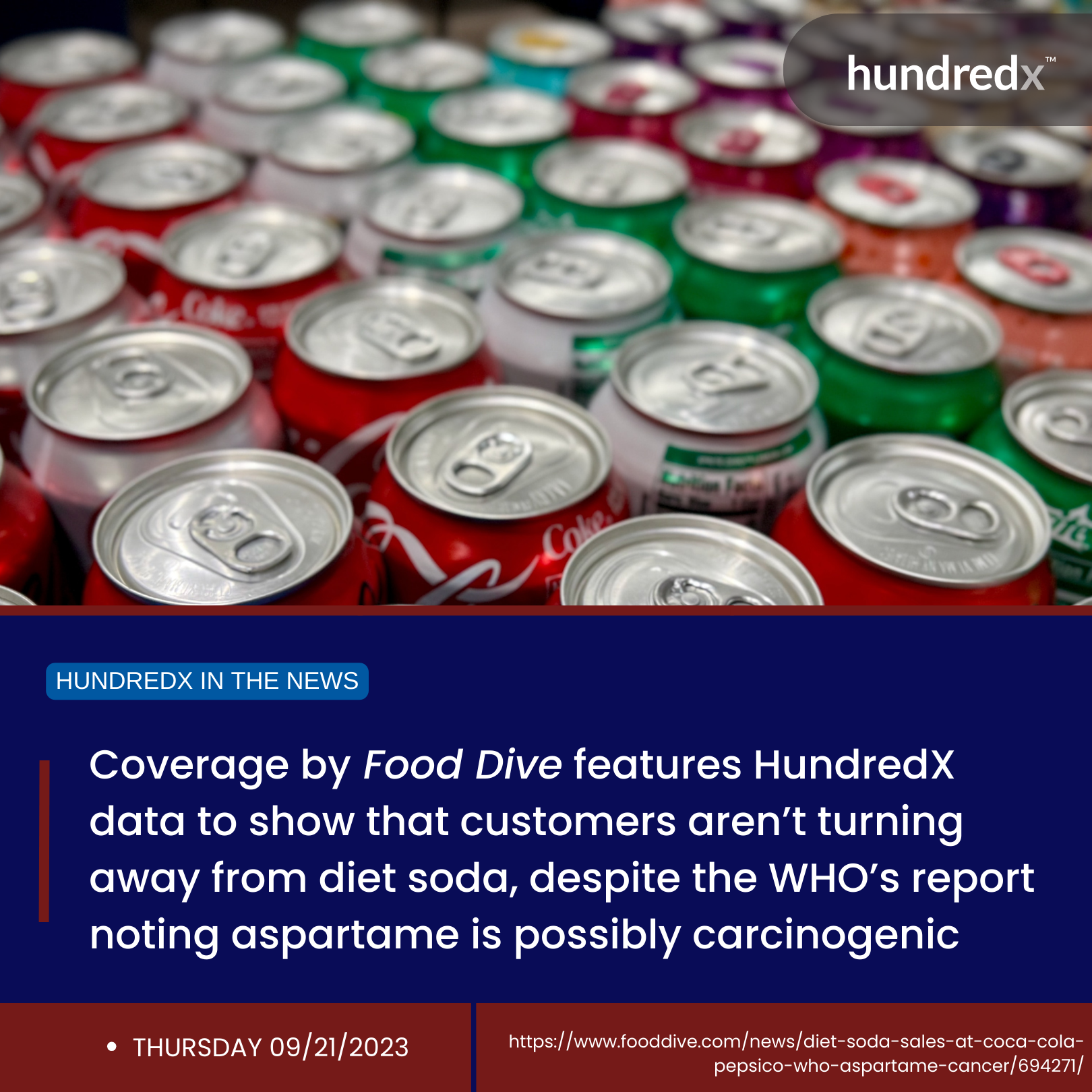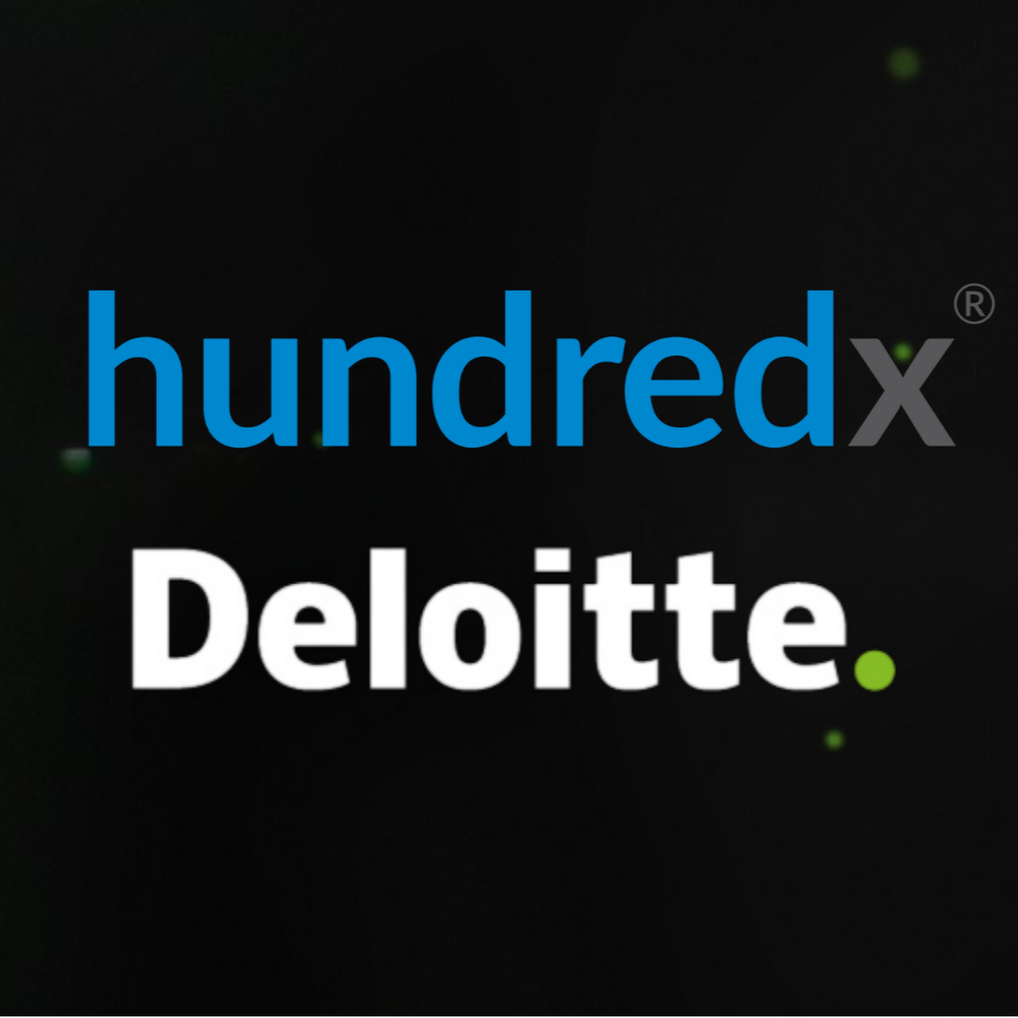Diet soda drinkers seemingly unfazed by aspartame report
The World Health Organization's (WHO) July report calling aspartame "possibly carcinogenic" didn't fizz out the love for diet sodas, HundredX data featured in Food Dive reveals.
HundredX’s analysis, which aggregated 150,000 pieces of customer feedback, gauged consumer reactions towards diet soda brands such as Coke, Pepsi, and Dr. Pepper following the WHO’s announcement. Bucking expectations, Consumption Intent for diet sodas rose by 2% from May through August, surpassing the modest 1% rise seen in regular sodas.

HundredX’s Vice President of Strategy, Andre Benjamin, shared with Food Dive that consumers often value taste and other happiness-contributing factors more than the potential health risks associated with aspartame. HundredX analysis found that the majority of diet soda drinkers perceive their drink of choice to be healthier than regular soda, a sentiment that hasn’t wavered since the WHO’s report.
Read our full exploration on diet soda sentiments here:
Soda Drinkers Unmoved by Aspartame Concerns (hundredx.com)
Crowd-Powered Business Advantage
Leveraging the power of The Crowd, HundredX continuously monitors consumer perceptions, providing businesses with essential information to maintain their market position. We tap into real consumer feedback to understand industry trends like fast fashion, as one example. With our extensive coverage of 80+ industries and 3,000+ brands, we analyze the collective opinions of everyday customers to uncover what really matters to them. Moreover, we evaluate how their priorities influence purchasing decisions and attitudes towards businesses. These insights empower business leaders to craft customer-focused strategies and gain a competitive edge in their markets.
Please contact our team for a deeper look at HundredX's non-alcoholic beverage data, which includes more than 400,000 pieces of customer feedback across 91 brands.



